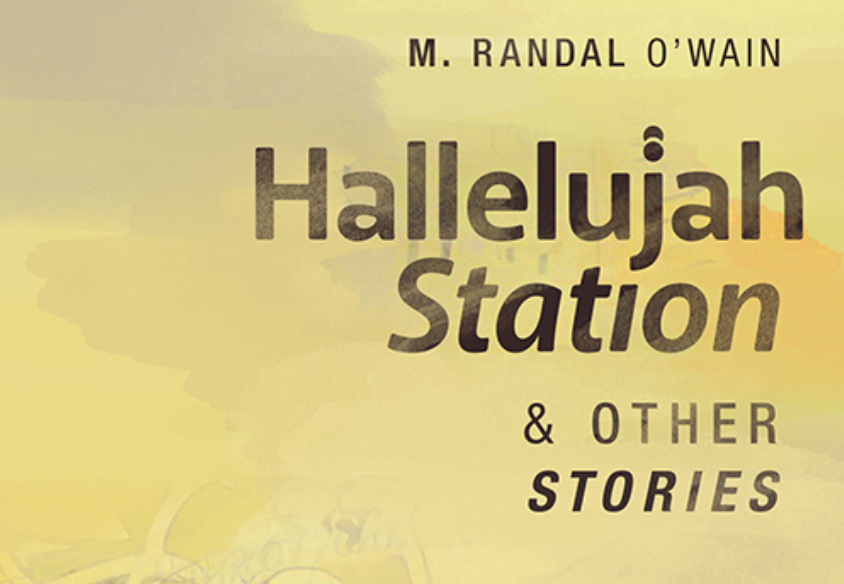M. Randal O’Wain’s stories limn the South’s inequities and anguished history
By Hamilton Cain for Chapter16.org
From Faulkner to O’Connor to Broom, the dispossessed have cast a long shadow over Southern literature, limning the region’s anguished racial history and vast wealth inequities. And yet in his memoir Meander Belt, and now his new collection of stories, Hallelujah Station, Memphis native M. Randal O’Wain has beautifully carved out his own space to explore lives we’ve pushed to the margins. There’s suffering aplenty, but there are also dashes of art — poets, Dutch Masters, David Lynch — to leaven the pain.

O’Wain’s South is the wayside, teeming with run-down marinas, God and guns, apartments cluttered with DVDs and CDs in neighborhoods “where windows without plywood were a luxury.” His characters linger at forks in their roads: a teenaged painter mauled by his brother and wracked with a desire to forgive; a worker “laid off from the Little Debbie factory”; a trans man yearning for stability in a partner. In another writer’s hands these lost souls would feel familiar, but O’Wain cores out the humanity beneath the violence, with a keen eye for the quirky, revelatory detail.
Hallelujah Station & Other Stories roams across a range of internal landscapes. “North of Windell” tells the story of Ruth, exiled to a strict Catholic girls’ school for transgressions real and imagined. “Rembrandt Behind Windows” evokes a young man’s piercing grief for his dead mother. And “Salvation,” a rambling tour de force that reads like a short-story version of Cormac McCarthy’s Suttree, portrays a community of misfits searching for roots and coming up short, amid derelict boats moored in the Mississippi River.

Hallelujah Station & Other Stories
By M. Randal O’Wain
Autumn House Press
192 pages
$17.95
As the father of a 17-year-old son afflicted with a paralyzing neuromuscular disease, I lost my critical detachment while reading the title story. “Hallelujah Station” burrows deep into the experience of a young woman accidentally electrocuted as a child: She’s inert, unable to speak, locked in the cell of her own body. O’Wain evokes the grim realities of the severely disabled — sponge baths, vomit, spoon-fed mush — as well as those of caregivers, stressed and short-tempered and morally conflicted. Here the narrator floats along a stream of her own thoughts, with no one except an invisible alter ego, the “downright sassy” Girl, to listen, until the day an employee at the long-term care facility shows up:
His irises were black, with thick gray sacks under his eyes. The way he looked at me expressed both curiosity and longing. Everyone else who visited — doctors, nurses, and orderlies — paid attention to the necessary parts of my body required for their tasks, but no one looked at me. Manny sought out my blue eyes from where my head slouched down toward my chest, a sling of drool bridging between my cheek and shoulder.
Manny abducts the narrator, and a miracle literally jolts her back into the world. O’Wain gives this deus ex machina his own twist: Manny is redeemed as well. The fine line between sinners and saints is an evergreen theme of Southern fiction, but O’Wain strikes me as a writer on the move, increasingly assured of his talent and slant mode of storytelling, firing off gorgeous sentence after gorgeous sentence. The South is quickening with fresh literary blood, shifting toward an emerging generation. M. Randal O’Wain leads the charge, invigorating our tradition and carrying it forward.

Hamilton Cain is the author of This Boy’s Faith: Notes from a Southern Baptist Upbringing and a frequent reviewer for O, the Oprah Magazine; the Minneapolis Star Tribune; and other venues. A native of Chattanooga, he lives in Brooklyn, New York.

